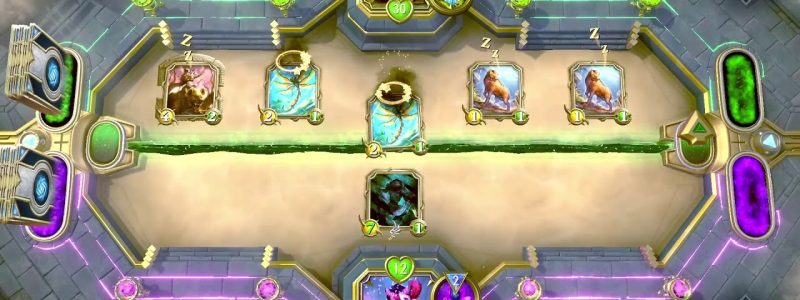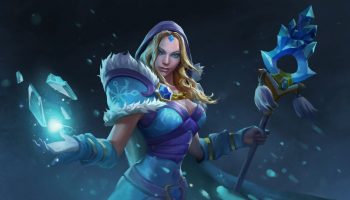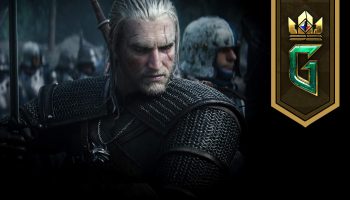Recently, many have reported that VC funding is flowing to more and more games.
In episode 216 of the Blockcrunch Podcast, host welcomes on , Co-founder of , to discuss the current state of Web3 gaming, how VCs are investing, and what to expect going forward.
Read our notes below to learn more.
Thoughts on Play to Earn
- Many games copied 2 token model that (the most popular play to earn game) used: a governance token, and an inflationary rewards token.
- Axie’s popularity encouraged people to trade their tokens.
- When markets fell, SLP (the rewards token) fell along with it.
- The 2 token model was proven to be flawed as it doesn’t give teams the ability to act quickly enough.
- To combat this, many games today are implementing ‘soft currencies’, that can’t be completely owned or sold by a user the way a token or NFT could.
- Games are delaying the point at which players begin earning actual tokens or NFTs.
On-chain Games
- Putting assets on-chain forces a data standard, and forces interoperability with other games assets.
- There typically isn’t a lot of interoperability in legacy gaming.
- It is difficult to have all assets on-chain.
- Game developers are implementing entry and exit taxes into their game ecosystem.
- On-chain games promote asset trading, which only applies to multiplayer games, not single player games.
- Multi-player games also create different jobs for players to take on to get involved.
- These games need to be 0-sum in some gameplay aspects, not everyone can win in a sustainable economy.
- A well-designed game will encourage people to buy assets just to flex, rather than to make money.
Play to Earn Games in Web3
- , CEO of game studio , plans to create a free-to-own economy in their upcoming game after having raised $200m.
- This will work by original NFT holders being airdropped new assets.
- One issue could be that original holders end up holding too much of the game’s value, discouraging new players.
- Web3 gaming is similar to the rise of free-to-play games, in the sense that developers had to experiment with their structures early on.
- It is more important to be careful when implementing new changes in Web3 games, as players usually have more money invested.
Web3 Competitive Gaming
- Games should charge fees for competitive matches and use this to create a prize pool for winners.
- An ideal competitive Web3 game should be structured similarly to F1 racing.
- Sponsors can also get involved.
- This is different from gambling, as the winners will be decided by skill rather than luck.
How to Create an Optimal Game
- Developers should think about the game as an economy.
- Games should be free to play, developers shouldn’t make a lot of money from direct sales.
- Developers should leave the economy in the hands of the players to produce assets and trade.
- The game would make money via a secondary market fee.
- This makes the free-to-own model very powerful.
- Developers need to limit the amount of assets the game releases, to avoid inflation.
- Important to have experience in game development, especially in building in-game economies for Web2 games.
- Good games often have a development cycle of 2-3 years.
- The game needs to be fun; there are many ways games achieve this.
- Gabby looks for founder-market-fit, experience or skillset that provides an edge which sets them apart.
Gaming Guilds
- Gaming guilds have been a concept since the late 90s, most common in World of Warcraft, Runescape.
- Web3 guilds handle real value with their treasury balance sheets.
- Axie Infinity saw more money being taken out of their economy by guilds than coming in.
- Guilds are specializing in certain areas, such as Esports, creating content, building products to manage in-game assets.
- There are even guilds working for other guilds.
- Guilds are similar in structure to DAOs.
- Guilds are pivoting to a prize-pool model before having access to earning rewards.
- provides a way for a community to create IP together, and distribute potential proceeds to the community.
Investing in Games
- created their first games fund recently.
- It is difficult for VCs to invest in games, until recently, you had to have a lot of experience playing games to invest successfully.
- Today, VCs can look at the financial aspects of games and make decisions.
- It is very difficult to bet on games.
- Building an open economy game will naturally turn into infrastructure for other games e.g., Roblox
Yield Guild Games
- Yield Guild Games (YGG) launched sub-DAOs across the world that onboard new people to Web3.
- YGG and other guilds can build lending, benefits for players.
- As games are evolving into economies, there are many opportunities to build new products and services.
This summary was originally posted on , which is a 100% free no-nonsense daily crypto newsletter by Revelo Intel.
Source: https://www.reddit.com/r/NFTGames/comments/y41bhp/summary_web3_gaming_true_innovation_or_just_a/







